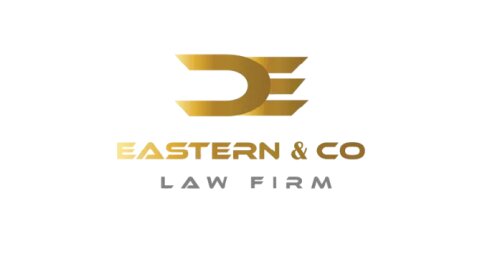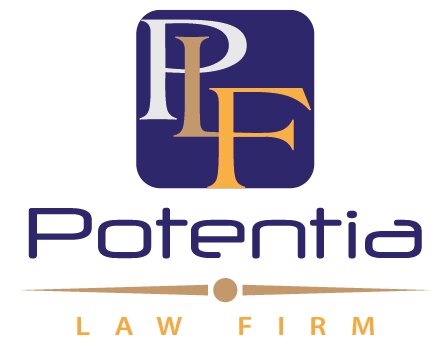Best Commercial Real Estate Lawyers in Dokki
Share your needs with us, get contacted by law firms.
Free. Takes 2 min.
Free Guide to Hiring a Real Estate Lawyer
List of the best lawyers in Dokki, Egypt
1. About Commercial Real Estate Law in Dokki, Egypt
Commercial real estate law in Dokki, Egypt covers how businesses buy, lease, develop and finance property within this Cairo suburb. It includes purchase and sale of office or retail spaces, commercial leases, mortgages, title registration, zoning and building approvals. Local practice blends national statutes with city or governorate regulations that affect commercial use and development in Dokki.
In practice, transactions involve several professionals working together. An advocate (lawyer) or solicitor handles contract drafting and due diligence. Notaries and land registry offices validate transfers and registrations, while surveyors verify boundaries and encumbrances. Coordinating with a local real estate broker can help navigate area-specific market norms and permit requirements.
Because Dokki sits within Greater Cairo, property matters often require close attention to both national laws and Cairo metropolitan policies. Engaging a Dokki-based legal counsel early helps align business objectives with regulatory compliance and reduces the risk of delays or disputes.
Sources: Egyptian legal framework includes the Civil Code and real estate registration rules; see government and international guidance for current practice at governmental portals and international analyses. - Ministry of Justice (Egypt) - Real estate registration and related procedures: moj.gov.eg - General Authority for Investment and Free Zones (GAFI) - investment and property-related regulations: gafi.gov.eg - World Bank - Egypt land governance and regulatory context: worldbank.org
2. Why You May Need a Lawyer
Drafting and negotiating commercial leases in Dokki requires careful attention to rent terms, escalation clauses, renewal options and exit provisions. An advocate can tailor the lease to fit your business cycle and risk tolerance, and ensure enforceability under Egyptian law. A well drafted lease reduces disruption to operations and protects your rights as a tenant or landlord.
Conducting due diligence before buying or leasing property in Dokki involves title verification, encumbrance checks, zoning compliance and permits for intended use. A lawyer coordinates with the land registry and local authorities to confirm clean ownership and ensure the property can be used for your planned activity. This helps prevent hidden liabilities after closing.
Structuring real estate financing and mortgages requires reviewing loan terms, security interests and priority of liens. An advocate can verify that the mortgage aligns with corporate governance and does not conflict with existing encumbrances. Proper documentation improves lender confidence and reduces closing risk.
Handling landlord disputes and eviction or breach scenarios is common in Dokki where commercial premises are in high demand. A lawyer can pursue lawful remedies, manage notice periods and negotiate settlements or court actions. Clear procedural steps help avoid excessive delays and statutory penalties.
Managing sublease or assignment arrangements when your Dokki lease allows subletting or transfer of obligations requires landlord consent and formal documentation. A solicitor reviews assignment provisions and ensures compliance with original lease terms. This minimizes risk of breach or unwinding of the contract.
Ensuring compliance with local zoning and permits for development or refurbishment projects in Dokki demands interaction with the Cairo governorate and municipal authorities. An advocate helps prepare permit applications, address conditions, and align plans with zoning restrictions. Proper planning reduces the risk of stoppages or fines during construction.
3. Local Laws Overview
Law No. 131 of 1948 - Egyptian Civil Code
The Egyptian Civil Code governs contracts, property rights, and our general rules for ownership and transfer. It provides the framework for commercial agreements including leases and sales. This code is the backbone of most property transactions in Dokki and across Egypt.
Law No. 114 of 1946 - Real Estate Registration Law
This statute establishes the requirement to register real property transfers and interests to be legally enforceable. Registration is a critical step in securing title and enabling mortgage perfection. The registry process is typically conducted at the relevant land registry office and is a common point of scrutiny in Dokki deals.
Law No. 148 of 2001 - Mortgage Law
The Mortgage Law sets out the framework for creating, registering and enforcing liens on real estate. It governs how mortgages are created, prioritized, and discharged. In Dokki, property financing often hinges on clear mortgage documentation and registration with the appropriate authority.
Recent reforms in Egypt have emphasized digitizing land records and easing some registration processes as part of broader e-government initiatives. For real estate investors and tenants in Dokki, this trend can shorten timelines and improve transparency. For current texts and updates, consult official government sources and professional advisories.
4. Frequently Asked Questions
What is the difference between freehold and leasehold in Dokki?
Freehold means you own the property outright, including its title and land rights. Leasehold gives you rights to use the property for a set term while ownership remains with the landlord. Lease terms and renewal rights are defined in the lease agreement and applicable laws.
How do I start due diligence on a commercial property in Dokki?
Begin with a title search at the land registry to confirm ownership and encumbrances. Obtain copies of permits, occupancy certificates, and any existing lease agreements. Have an advocate review all documents for risks before signing.
What documents are typically needed to draft a commercial lease in Dokki?
Key documents include business registration, proof of identity for signatories, the lease proposal, site plans, and any existing tenancy agreements. The lawyer will tailor a draft to cover rent, maintenance, and dispute resolution terms.
How much does a Dokki real estate lawyer typically charge?
Fees vary by transaction size and complexity. Expect hourly rates or flat fees for specific tasks, plus possible out-of-pocket costs for registrations. Request a written engagement letter with fee details before work begins.
How long does property due diligence usually take in Dokki?
Simple lease reviews can take 3-7 business days. A full title search and permit verification may extend to 2-4 weeks depending on document availability and registry response times.
Do I need a local Dokki lawyer, or can I hire someone from Cairo?
Local presence helps with jurisdictional issues and local regulator interactions. A Cairo-based advocate with Dokki experience can handle area-specific considerations effectively.
What is the process to register a sale or lease in Dokki?
Registering a sale or lease typically involves submitting deeds, contract abstracts, proof of identity, and registry forms to the land registry. The registry issues a title or lease certificate after review.
Is a power of attorney required to sign for a company in Dokki?
For company transactions, a properly executed power of attorney may be used if signatories cannot attend in person. The document must meet legal formalities and be registered if required by the contract.
Should I use a notary for a commercial lease in Egypt?
Notarization is often advisable to authenticate signatures and contracts. In Dokki, a notary can help validate the lease and support enforceability in disputes or litigation.
Do I need environmental or zoning clearance for an office building in Dokki?
Yes, depending on use and project scope you may require zoning confirmation and environmental assessments. Local authorities issue permits and ensure compliance with city planning rules.
Can I sublet or assign a commercial lease in Dokki?
Subletting or assignment typically requires landlord consent and an amended agreement. An advocate ensures the terms protect the original lease and any lender interests.
What is the difference between an advocate and an attorney in Egypt for real estate?
In Egypt, the common term is advocate or lawyer. An attorney is often used interchangeably in English-language materials; both refer to a qualified legal professional handling real estate matters.
5. Additional Resources
- Egyptian Ministry of Justice - Official entity overseeing justice administration including real estate registration and notarial services: moj.gov.eg
- General Authority for Investment and Free Zones (GAFI) - Government body governing investment, licensing, and real estate related to business activities in Egypt: gafi.gov.eg
- Egyptian Tax Authority - National body handling property taxes, VAT on real estate transactions, and related compliance: eta.gov.eg
6. Next Steps
- Define your objective and budget for the Dokki real estate project or tenancy. Clarify whether you will own, lease, or develop the property within 1-3 years.
- Gather key documents such as proof of identity, company registrations, land/lease titles, and any existing contracts. Organize them for a lawyer to review within 5-7 days.
- Identify a Dokki-based advocate with real estate experience and schedule an initial consultation within 1-2 weeks.
- Request a written engagement letter detailing scope, fees, and timelines before work begins. Align expectations on deliverables and milestones.
- Conduct due diligence on the property with your lawyer and obtain a clear title report, permit status, and any encumbrance certificates within 2-4 weeks.
- Draft or revise lease or sale agreements with specific terms on rent, security, maintenance, and termination. Seek lender alignment if financing is involved.
- Complete registration with the land registry and obtain the necessary certificates or deeds. Plan for possible follow-up actions if registrations require corrections.
Lawzana helps you find the best lawyers and law firms in Dokki through a curated and pre-screened list of qualified legal professionals. Our platform offers rankings and detailed profiles of attorneys and law firms, allowing you to compare based on practice areas, including Commercial Real Estate, experience, and client feedback.
Each profile includes a description of the firm's areas of practice, client reviews, team members and partners, year of establishment, spoken languages, office locations, contact information, social media presence, and any published articles or resources. Most firms on our platform speak English and are experienced in both local and international legal matters.
Get a quote from top-rated law firms in Dokki, Egypt — quickly, securely, and without unnecessary hassle.
Disclaimer:
The information provided on this page is for general informational purposes only and does not constitute legal advice. While we strive to ensure the accuracy and relevance of the content, legal information may change over time, and interpretations of the law can vary. You should always consult with a qualified legal professional for advice specific to your situation.
We disclaim all liability for actions taken or not taken based on the content of this page. If you believe any information is incorrect or outdated, please contact us, and we will review and update it where appropriate.










